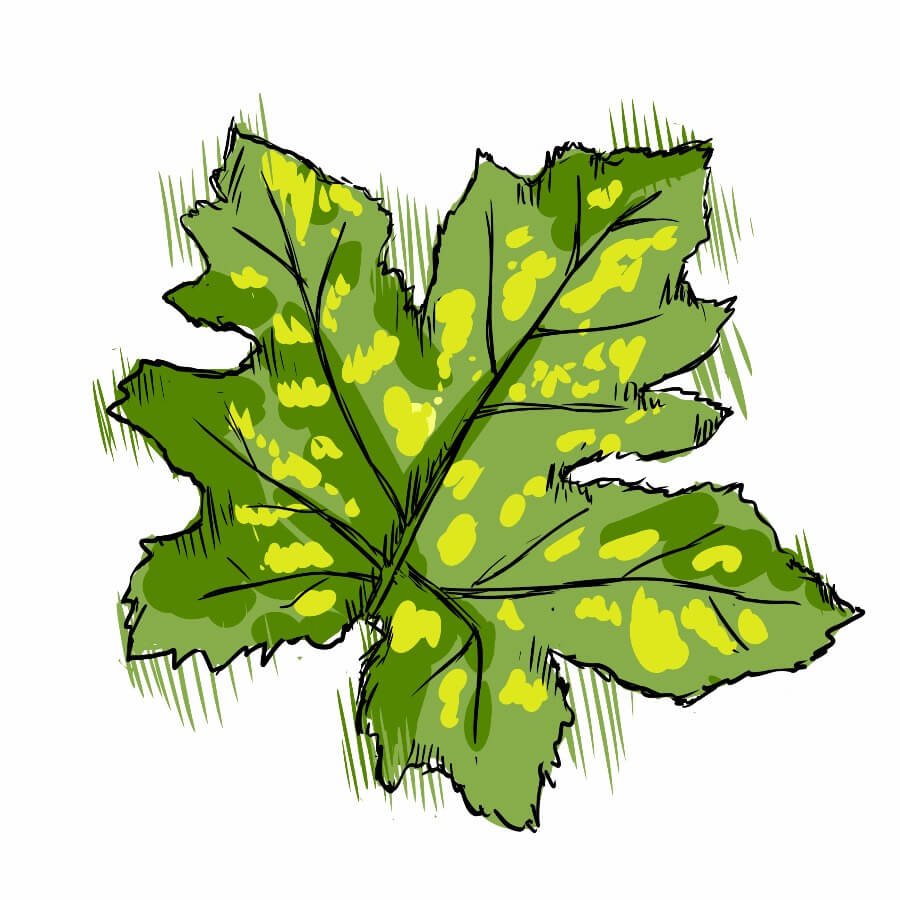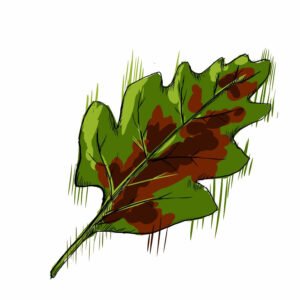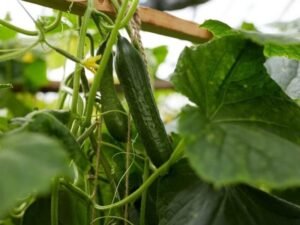Gardening enthusiasts and professionals alike must be aware of the potential threat that plant viruses pose to the health and wellbeing of their precious plants. Plant viruses are microscopic pathogens that can infect a wide range of crops and ornamental plants, causing diseases that can severely impact their growth and productivity.
This article will shed light on the nature of plant viruses, their transmission, and strategies to prevent and manage virus-infected plants.
What are Plant Viruses?
Plant viruses are tiny infectious agents that consist of genetic material surrounded by a protein coat. They primarily infect plants, causing diseases that manifest in various ways, including stunted growth, leaf discoloration, mottling, curling, and wilting. Viruses can infect a wide variety of plants, including vegetables, fruits, ornamental plants, and even trees.
Transmission of Plant Viruses
Plant viruses can be transmitted through several means, including insects, contaminated tools, seeds, or soil, as well as through vegetative propagation. Insects such as aphids, whiteflies, and thrips are notorious for transmitting viruses from plant to plant while feeding on the sap. Contaminated tools and equipment, or even human activities, can also transfer viruses from infected plants to healthy ones.
Prevention and Management
Purchase Certified Disease-Free Plants: When buying new plants for your garden, opt for certified disease-free plants sourced from reputable nurseries. Ensure they come with a plant health certificate, indicating that they have been thoroughly inspected and are free from any known infections.
Practice Good Sanitation: Regularly clean and disinfect your gardening tools, equipment, and containers to minimise the risk of virus transmission. Remove and destroy any infected plant material promptly to prevent the spread of viruses to healthy plants.
Implement Crop Rotation: Practicing crop rotation can help break the cycle of virus infections. Avoid planting crops from the same family in the same location year after year, as certain viruses can persist in the soil.
Use Physical Barriers: Protective coverings, such as row covers or netting, can prevent insects from coming into direct contact with plants, effectively reducing the risk of virus transmission.
Monitor and Control Insect Populations: Regularly inspect your plants for the presence of insect pests that are known to transmit plant viruses. If detected, employ appropriate insect control measures such as insecticidal soaps, oils, or biological controls.
Strengthen Plant Health: Healthy plants are more resilient to diseases, including viruses. Maintain proper plant nutrition and watering regimes, as well as provide adequate sunlight and airflow to optimise plant vigor and reduce susceptibility to infections.
Conclusion
Plant viruses are a significant threat to garden plants, capable of causing devastating diseases that can impair plant growth and productivity. By understanding the nature of plant viruses, their modes of transmission, and implementing preventive measures, gardeners can significantly reduce the risk of virus infections and maintain healthy, thriving plants. Stay vigilant, practice good sanitation, and employ appropriate control strategies to safeguard your garden from the menace of plant viruses.
Plant Virus FAQs
Here are some frequently asked questions (FAQs) about plant viruses:
Q. What are plant viruses?
A. Plant viruses are tiny infectious agents that infect plants, causing diseases that can negatively affect their growth and productivity. These viruses consist of genetic material surrounded by a protein coat.
Q. How do plant viruses spread?
A. Plant viruses can be transmitted through insect vectors, contaminated tools or equipment, infected plant material, seeds, and even through vegetative propagation. Insects such as aphids, whiteflies, and thrips are known to transmit viruses while feeding on plant sap.
Q. How can I prevent plant viruses in my garden?
A. Several measures can help prevent plant viruses in your garden:
- Purchase certified disease-free plants from reputable nurseries.
- Practice good sanitation by regularly cleaning and disinfecting gardening tools, equipment, and containers.
- Implement crop rotation to break the virus cycle.
- Use physical barriers, like row covers or netting, to keep insects away from plants.
- Monitor and control insect populations using appropriate insect control measures.
- Maintain proper plant health through adequate nutrition, watering, sunlight, and airflow.
Q. How do I know if my plants are infected with a virus?
A. Common signs of virus-infected plants include stunted growth, leaf discoloration, mottling, curling, and wilting. If you suspect a virus infection, it is best to consult a local extension service or plant professional for a proper diagnosis.
Q. Can plant viruses be cured?
A. Unfortunately, there is no cure for plant viruses. Once a plant is infected, the virus cannot be eliminated. Infected plants should be promptly removed and destroyed to prevent further spread to healthy plants.
Q. Are all plant viruses harmful to humans?
A. No, plant viruses are specific to plants and do not typically infect humans or animals. However, some insects that transmit plant viruses might cause nuisance or health issues for humans, such as mosquito-borne diseases like malaria or West Nile virus.
Q. Are there any resistant plant varieties available?
A. Yes, some plant varieties have been developed to be resistant to specific viruses. These resistant varieties can help reduce the risk of virus infection and facilitate better plant health. Check with local nurseries or seed suppliers for virus-resistant plant options suitable for your region.
Q. Can I use chemicals to control plant viruses?
A. Chemical control of plant viruses is not practical or effective. Most insecticides target the insects spreading the viruses rather than the viruses themselves. Focus on preventative measures and cultural practices to reduce virus transmission instead.
Q. Can viruses spread through the soil?
A. Some plant viruses can persist in the soil, especially if infected plant material is left behind. However, soil transmission is generally less common compared to insect vectors or other means of virus transmission.
Q. Is there ongoing research on plant viruses?
A. Yes, scientists continuously study plant viruses to develop better detection methods, prevention strategies, and virus-resistant plant varieties. Research is crucial for understanding and managing the threats posed by plant viruses.





































